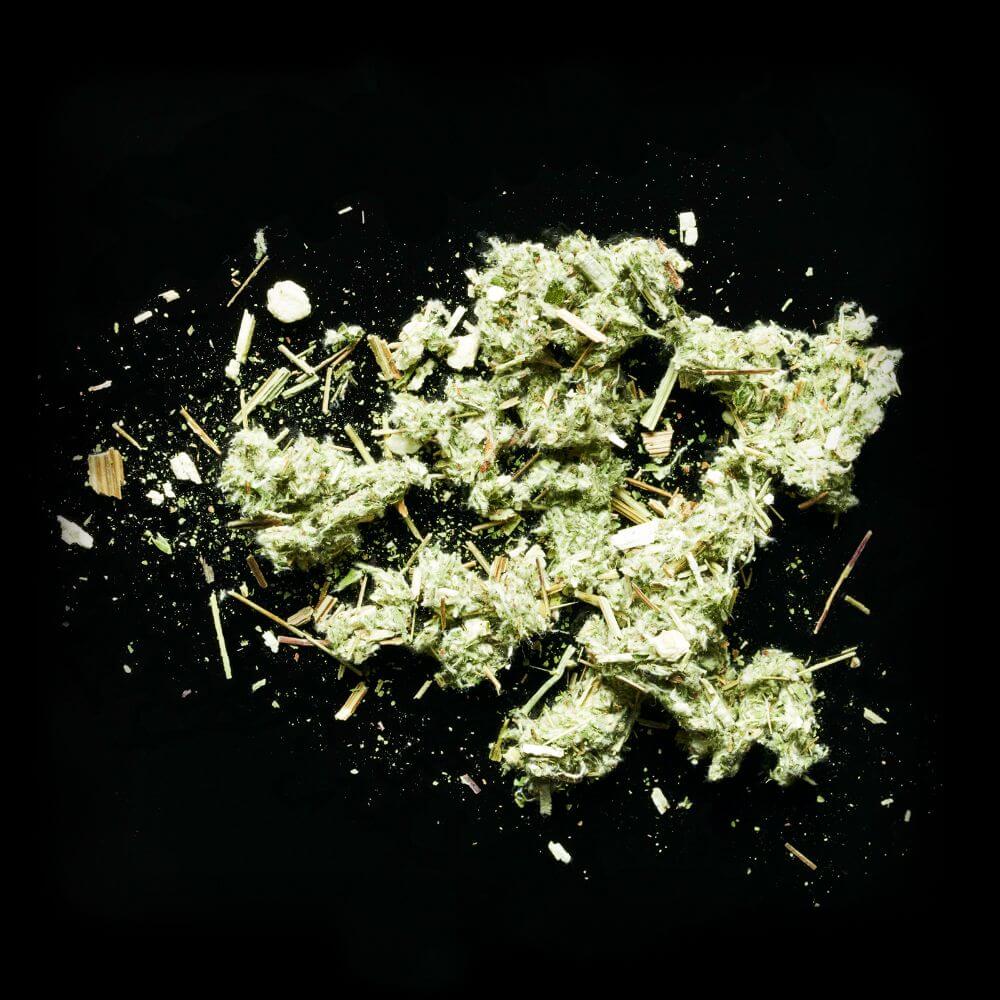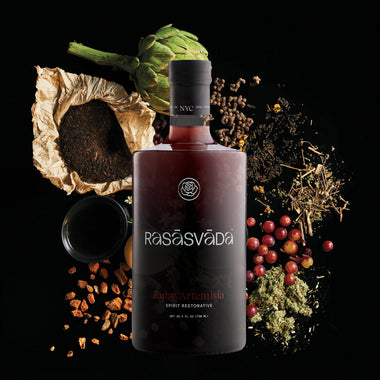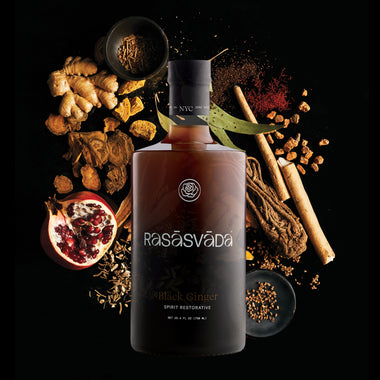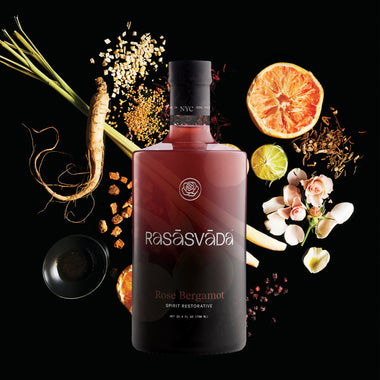Wormwood (Artemisia absinthium) is an herb with silvery-green, feathery leaves with fine hairs, small yellow-green flowers, and a strong herbal aroma. Native to southern Europe and Asia, it now can be found in North America and across the world.
Wormwood is most famously the base of absinthe, a spirit concocted of the flowers and leaves of Artemisia absinthium, together with green anise, sweet fennel, and other medicinal and culinary herbs. Due to its high alcohol content and legendary status among artists and creatives for hallucinatory properties, absinthe has captured imaginations for centuries.
But when it's not in the “green fairy”, wormwood is a powerful bitter with real benefits for digestion, liver health, and overall balance. Today, it remains a valued plant in both Traditional Chinese Medicine (TCM) and Western herbalism.
Botanical Overview
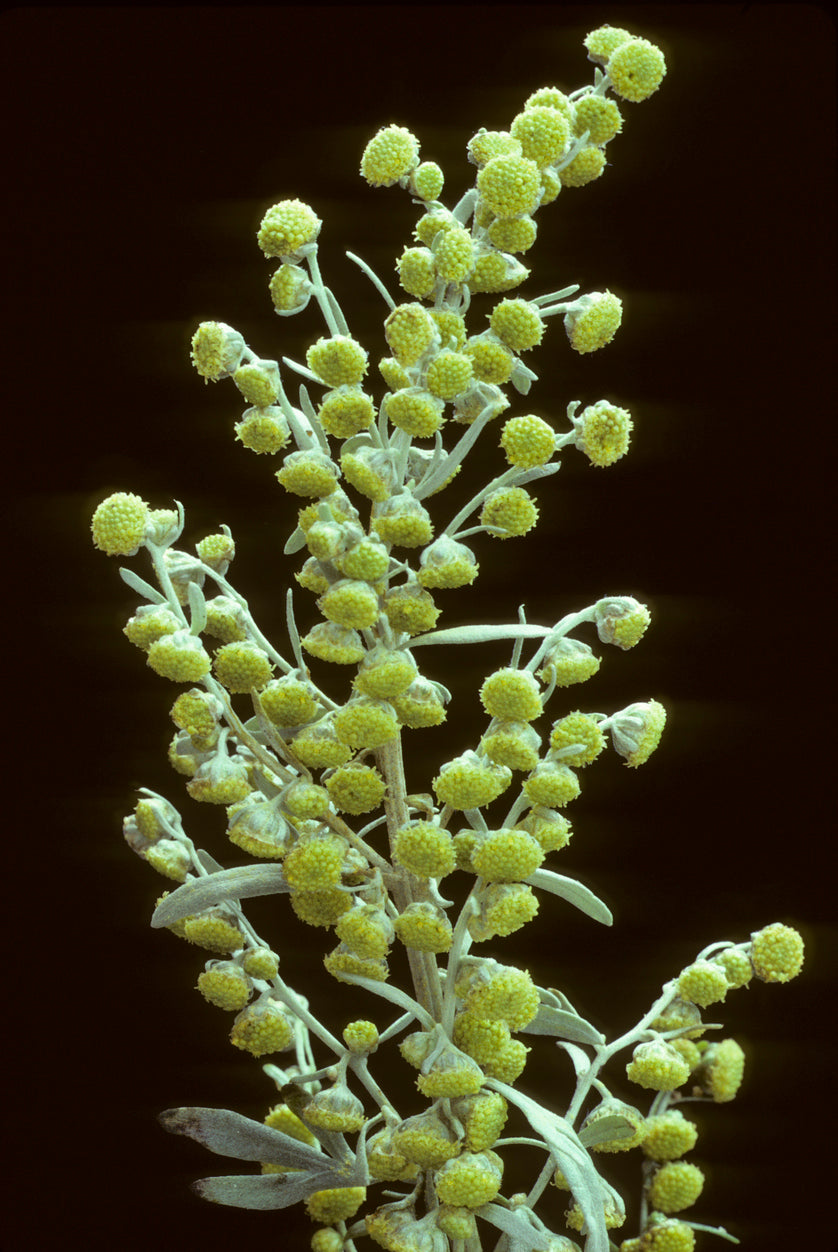
Botanical Name: Artemisia absinthium
Family: Asteraceae (daisy family)
Common Names: Wormwood, Absinthe, Green Ginger, Madderwort, Absinthium; Genepi in Latin; Vermouth in French; Apsinthion in Greek; Absinthium in Hemopathy, Anjenjo in Mexican; Yang ai, Kuai in Chinese; Majtari, Majri, Mastiyarah, Karmala in Hindi; Absinth, Wermut in German; nigayomogi in Japanese; Damseeh, and Afsanteen in Arabic
Phytochemical Highlights:
Thujone – a bitter compound long associated with wormwood’s effects, now regulated in food and drink to have only a minimum amount, as required by the FDA
Flavonoids & Phenolic Acids – antioxidants that help reduce oxidative stress
Sesquiterpene Lactones (SSP) – plant compounds known for digestive and anti-inflammatory support.
History of Wormwood
Wormwood’s roots stretch back thousands of years: Ancient Egyptians used it for digestive and parasitic complaints, the Greeks and Romans drank it to support the stomach and liver. In medieval Europe, wormwood appeared in herbal texts as a remedy for indigestion and melancholy.
Through Silk Road trade and later phytotherapy exchanges, wormwood found its way into Chinese herbology. In TCM, wormwood is considered a bitter that reduces pain and fever, with an emphasis on supporting the Liver and Gallbladder. Practitioners use it to:
- Clear heat and resolve dampness – easing heaviness, bloating, or poor appetite.
- Stimulate digestion – supporting bile production and liver Qi flow.
- Expel parasites – traditionally used for intestinal worms.
Culturally, wormwood gained notoriety in the 18th and 19th centuries as the defining ingredient in absinthe, the drink du jour in Paris cafés. Though absinthe was banned for decades due to its reputation as a hallucinogen, the myth was largely exaggerated—the effects came more from high-proof alcohol than from wormwood itself. As of 2007, absinthe was again legal in the U.S. and much of the world, but thujone levels are carefully regulated.
The Health Benefits of Wormwood
Today, wormwood is still part of TCM and western Herbalism, and research is ongoing (even those centuries-old claims of parasite control are being studied in pigs). The top five health benefits of wormwood now are:
1. Digestive Support
Wormwood is a classic bitter tonic with its sharp flavor and stimulation of bile flow, helping the body digest fats, ease bloating, and support a healthy appetite.
2. Liver Health
By promoting bile production and circulation, wormwood has been used traditionally to support the liver and gallbladder, aligning with both TCM’s “liver Qi” framework and Western hepatoprotective approaches.
3. Antimicrobial & Antiparasitic
The name “wormwood” reflects its long history as a treatment for intestinal worms. While modern studies are limited, wormwood continues to be explored for its antibacterial potential.
4. Anti-inflammatory & Antioxidant
Flavonoids and phenolic compounds in wormwood offer antioxidant effects, helping the body combat oxidative stress and inflammation.
5. Skin Health & Support
By aiding detoxification and reducing inflammation, using wormwood topically has been traditionally linked to clearer skin with anti-aging effects.
Wormwood in Rasāsvāda
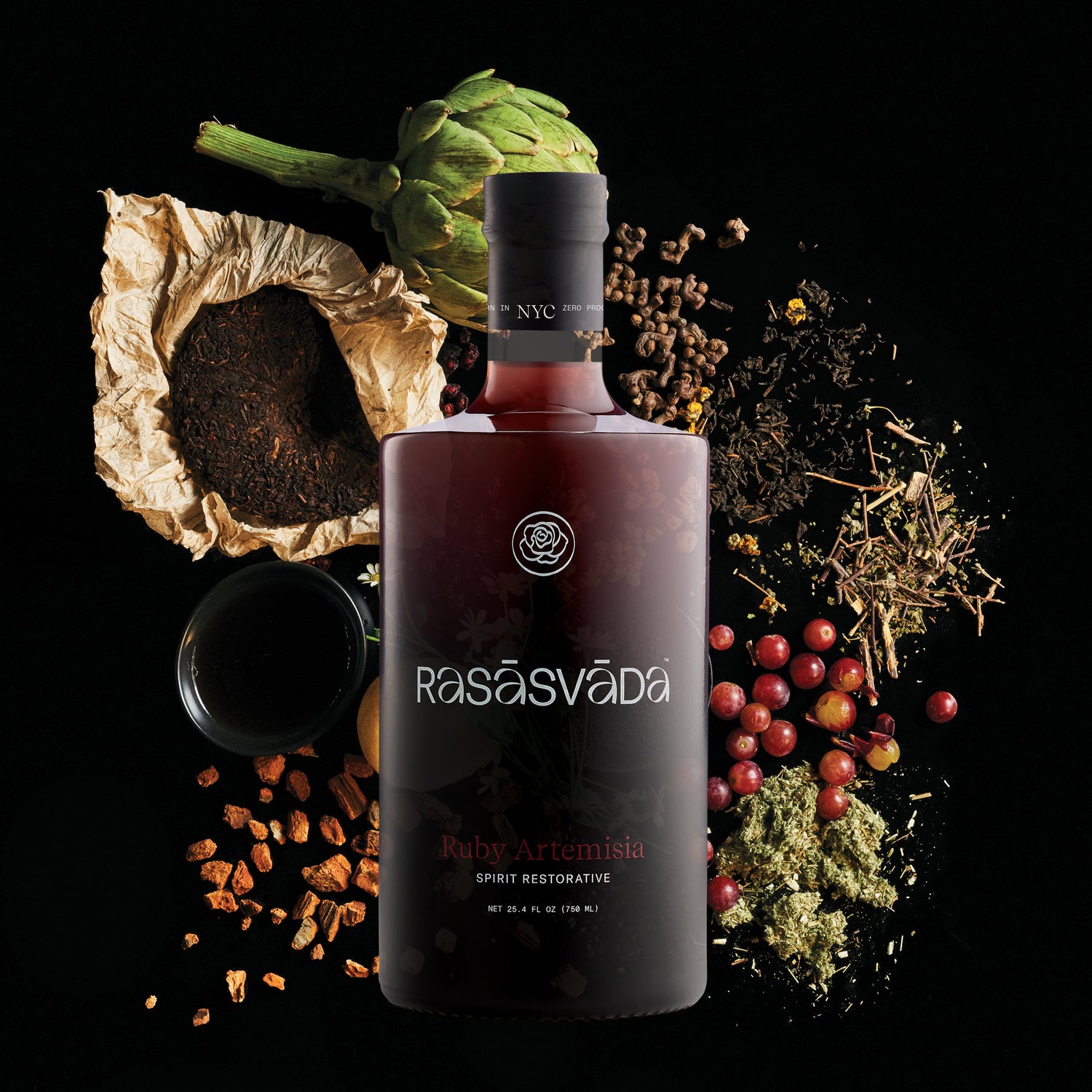
By blending wormwood with other adaptogens, roots, and herbs, Rasāsvāda’s Ruby Artemesia captures the herb’s deep, bitter intensity while supporting digestion, beauty, and metabolic balance. Featuring ingredients long valued for their anti-aging properties, it was the top performer in our longevity studies, promoting vitality from the inside out.
Ruby Artemesia is a restorative drink enriched with adaptogens, nootropics, nervines, and bitters. Rich in antioxidants and anti-inflammatory compounds, wormwood is unapologetically bitter, with earthy, herbal sharpness and subtle menthol undertones. It’s the backbone of many classic bitters and aperitifs, and adds bold complexity to Rasāsvāda blends.
Sourced from: Wisconsin, USA
Key Takeaway
Wormwood is more than its folklore and absinthe legends. It’s an herb with a deep medicinal history, bridging TCM, Western herbalism, and modern wellness. Bitter, bold, and balancing, wormwood has long been used to support digestion, liver health, and systemic harmony. In Rasāsvāda, this storied plant finds new life with all those benefits plus longevity and supporting beauty from the inside out.
FAQs
Disclaimer
People with allergies to plants in the daisy family (such as ragweed, chrysanthemums, or marigolds) may be allergic to wormwood. Some wormwood products contain thujone, a chemical that may worsen porphyria, a rare inherited blood condition, and could potentially affect the uterus. If you are pregnant, breastfeeding, or have an underlying health condition, consult a physician before ingesting wormwood.
Sources
Antibacterial and Phytochemical Screening of Artemisia Species - PMC.
(PDF) Research Gate | Artemisia absinthium, wormwood
Thujone - an overview | ScienceDirect Topics
Why Was Absinthe Banned | Maison Absinthe | Absinthe Propaganda
Wormwood as a dietary supplement | EBSCO Research Starters
100% plants. 0% preservatives.
